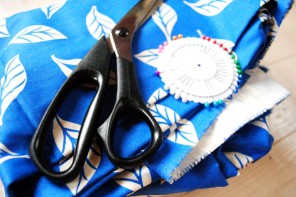Written by: Giulia Simolo
“Fair trade” is a term that we hear a lot about nowadays, especially when it comes to food and clothing. There has been a surge of interest in all things fair trade, with responsibility placed on consumers to purchase fair trade items. But what exactly does “fair trade” mean and how can we ensure that we are incorporating it into our lifestyle? Read on to discover the ins and outs of fair trade.
What does “fair trade” mean?
According to Wikipedia, fair trade is a social movement and market-based approach that tries to help producers in developing countries make better trading conditions and promote sustainability. The movement works towards providing market access to otherwise marginalised producers, connecting them to customers and allowing access between them with fewer middlemen. It aims to provide higher wages than those that are typically paid to producers, as well as helping producers develop knowledge, skills and resources to improve their lives and communities.
When you see a product labelled “fair trade” you know that the goods meet agreed standards, such as those of banning child labour, ensuring a safe workplace for labourers, as well as protection of the environment.
Buying “fair trade”
It’s wonderful to know that fair trade ensures the wellbeing of workers as well as the environment, but why should you have to partake in the process? Whether or not you purchase that fair trade chocolate or t-shirt, does it really make a difference? Yes! Fair trade is just as much about the consumer as it is about the environment. Here are some reasons why you should buy fair trade products:
- You are supplementing income to the farmers. The farmers who have grown your products are ensured a minimum price for the products, so that when you purchase the item you are ensuring that they are able to continue working, supporting themselves and maintaining their farms.
- You take a stand to ensure the continuation of healthy working environments for workers. This is along the same lines when you buy products that are not tested on animals. Although the cosmetic company has already done the good deed, you as the consumer are still required to complete the eco-friendly initiative. By purchasing those fair trade products, you are taking a stand to support the work that is going on to ensure a happier, healthier world!
- A large part about fair trade farming involves the avoidance of harmful chemicals. Your purchase helps the farms to continue working towards ensuring clean, healthy lands and practices. It also prevents the communities from being subjected to negative effects of chemical farming, such as polluted water and diseases.
- You help communities and society’s wellbeing. Some of the profits that are acquired from production of free trade products go to improving services for local communicates, such as medical, educational and environmental services, thus lowering the incidence of poverty in these areas.
What you get out of it
The feeling of making a difference in the world through your purchase of free trade products is a great one. But besides for knowing that you are doing your bit to help, you also win in other, more personal, ways by choosing fair trade products. As has been mentioned, fair trade is largely centred around sustainability, so when you purchase free trade products such as clothing, they are made with higher quality so that they will last you a longer time than regular clothes, thus keeping you from having to get caught in the purchasing-waste cycle. This also has the result of saving you more money in the long-term because you don’t need to purchase a lot of clothing on a regular basis. So your pocket feels the bonus, too.
The liveeco team






